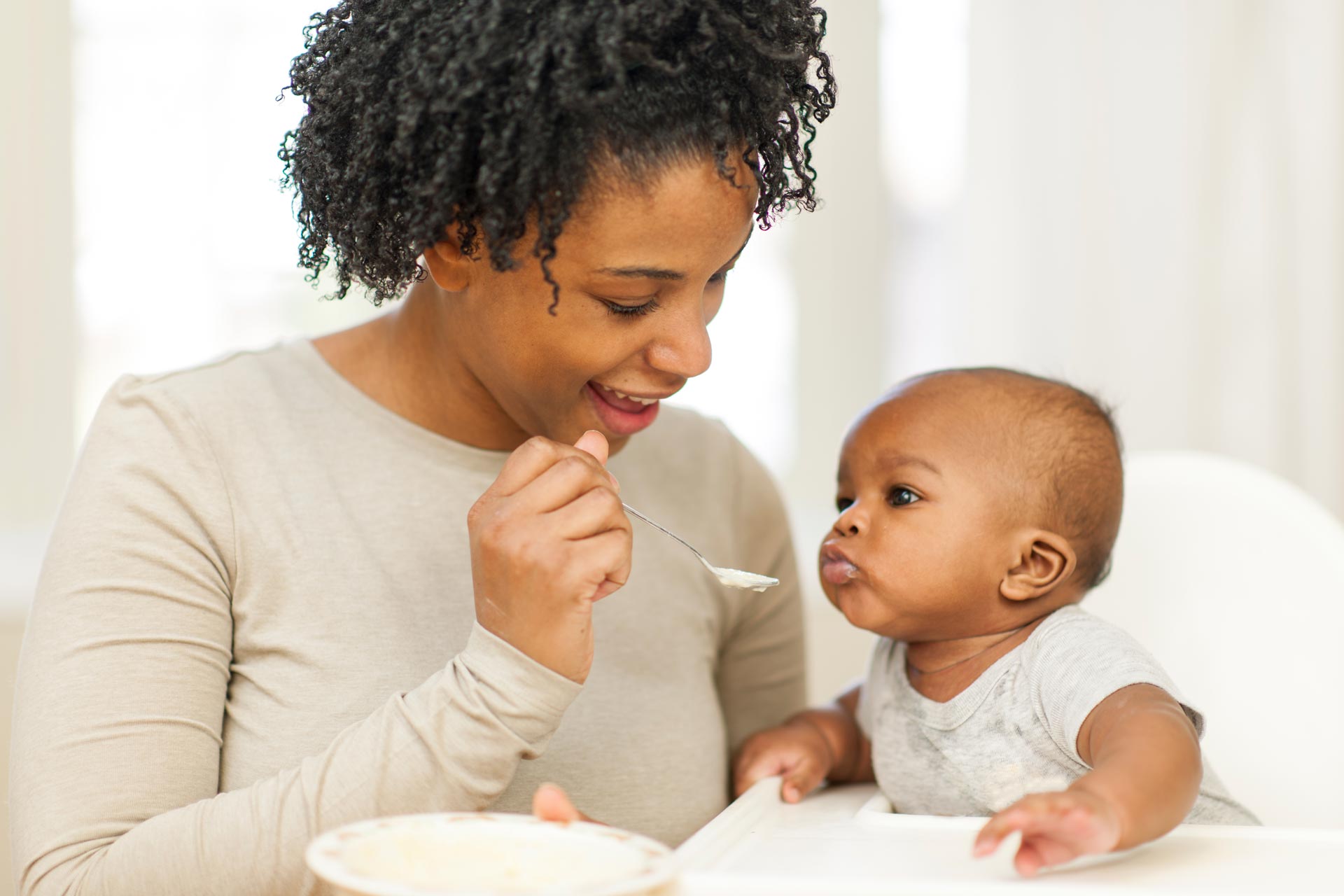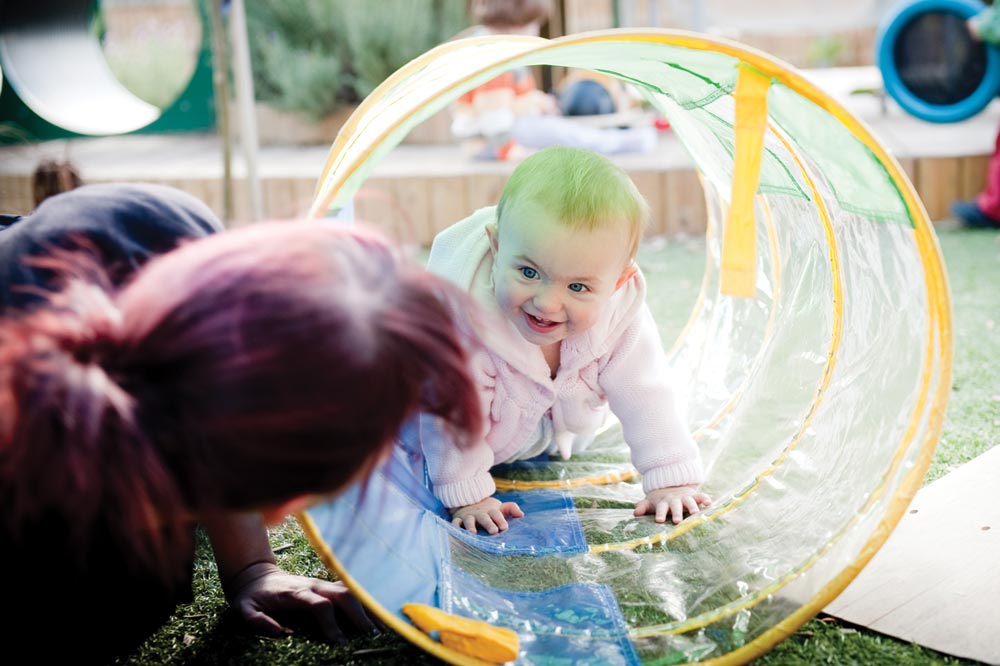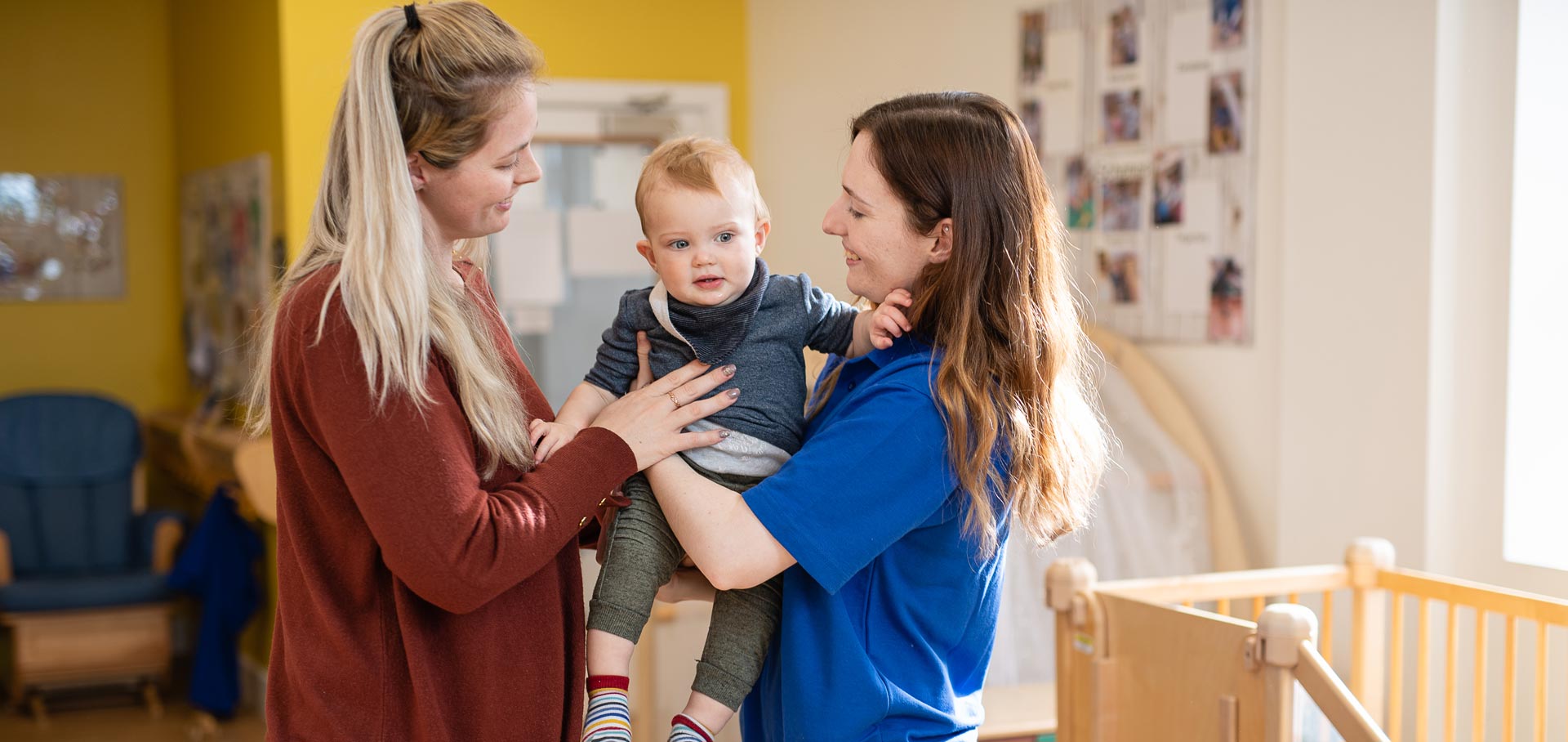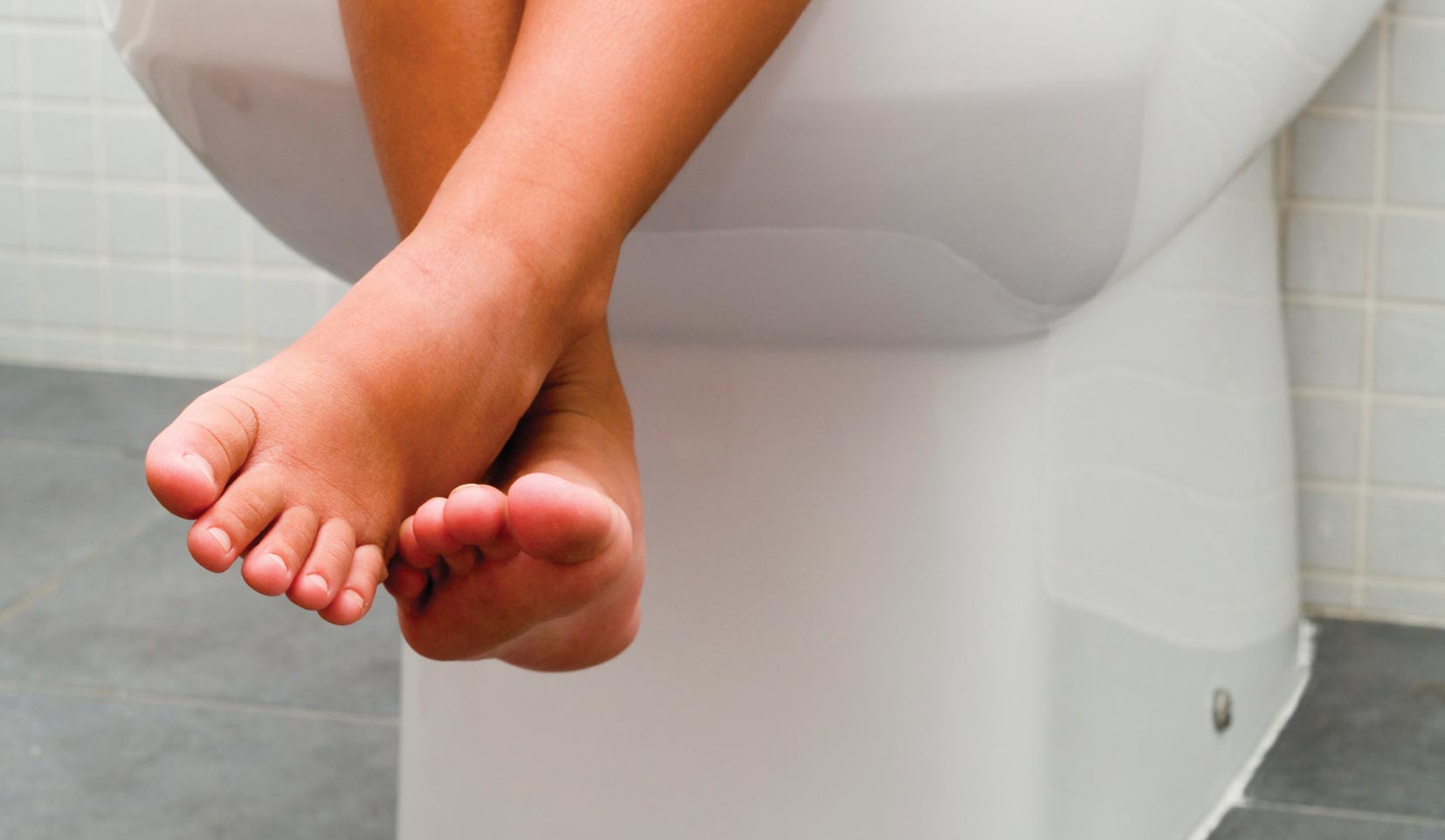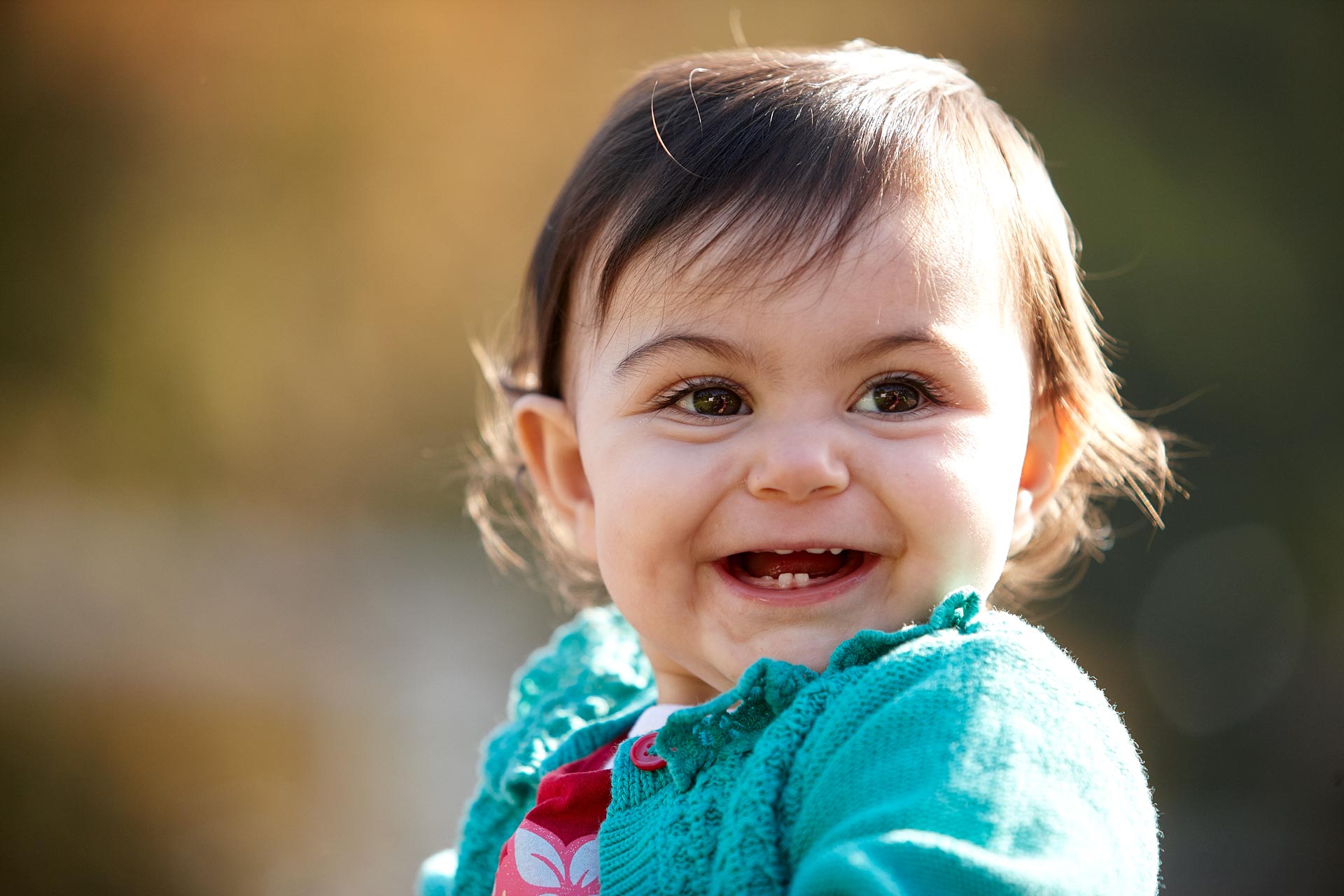
A Guide to Becoming A Communicator
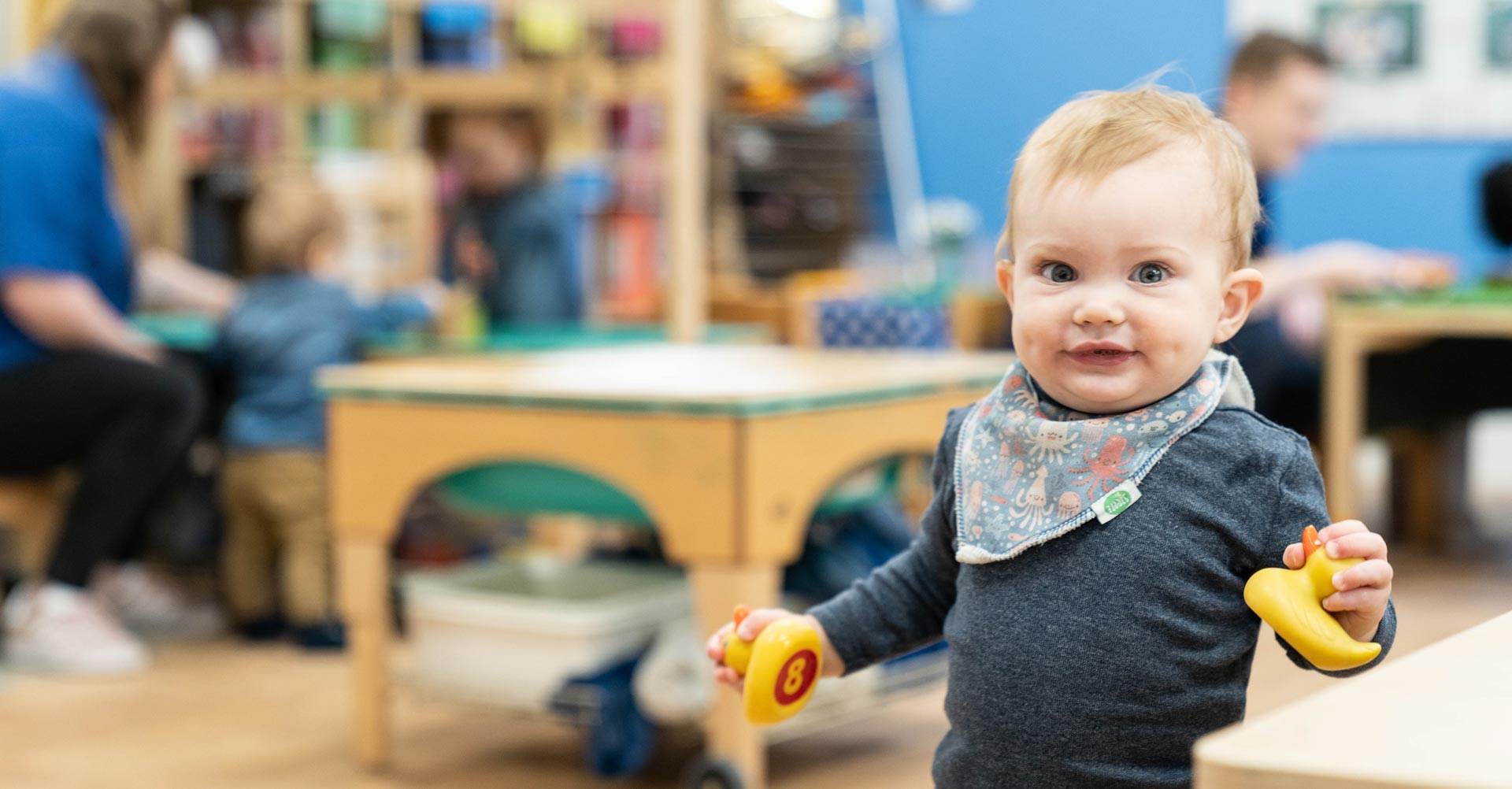
First words
Babies are tuned into language from birth. From cooing and babbling, to their first words, your baby learns about the world through communication. Children learn language by being with people who encourage and look for opportunities to communicate with them.

Non-verbal communication
A newborn’s primary way to communicate discomfort is through crying. This alerts you to their need but also strengthens the parts of their brain that will later be used for speech. They also communicate through facial expressions and through vocalisation, or making sounds. When your baby is crying, just saying something back and talking to your baby in soothing tones will help them, giving them confidence that you are listening. As you speak to them, you can also add a ‘sing song’ tone to your voice, so that they can enjoy the sounds that you make; and as you nod your head or give a smile, they will begin to respond. If you pause occasionally, as if in a conversation, and ‘wait’ for your baby to respond, they will quickly get the message and learn that ‘turn taking’ is part of verbal and non-verbal communication.
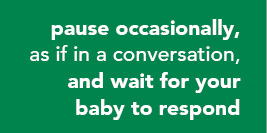 Long before your baby says their first word, gurgling, babbling and squealing will be how they communicate their needs and feelings. They will make their own sounds in response when spoken to by familiar adults. Encouraging your baby’s sounds by copying them creates a turn-taking ‘conversation’. As they practise and develop speech sounds, you will hear them formulate sounds like ‘baba’, ‘nono’ and ‘gogo’, usually practicing with ‘hard’ sounds first, as these are easier for them to form in their mouth.
Long before your baby says their first word, gurgling, babbling and squealing will be how they communicate their needs and feelings. They will make their own sounds in response when spoken to by familiar adults. Encouraging your baby’s sounds by copying them creates a turn-taking ‘conversation’. As they practise and develop speech sounds, you will hear them formulate sounds like ‘baba’, ‘nono’ and ‘gogo’, usually practicing with ‘hard’ sounds first, as these are easier for them to form in their mouth.
Talking through action
Talking to your baby about what you are doing is a good place to start, such as, “I’m rubbing your tummy.” They will also develop their understanding of language through sounds used in play, like saying ‘brrrum’ for a toy car. When your baby tries to say a word, repeat it so they can hear the name of the object clearly, and pick up the object in response.
Language milestones
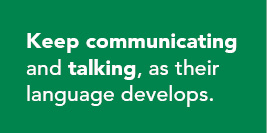 Babies reach language milestones at a wide range of ages. On average, they say their first word at 12 months and are able to manage two-word ‘sentences’ by the age of two. Keep communicating and talking, as their language develops. Like with other big moments in your baby’s life, it will happen when they are ready. Ask simple questions, that require a response, to encourage your child to speak. For example, ‘Do you want a drink? Milk or juice….milk, juice?’ showing the item if possible and stressing the word as you show, to emphasis which is which.
Babies reach language milestones at a wide range of ages. On average, they say their first word at 12 months and are able to manage two-word ‘sentences’ by the age of two. Keep communicating and talking, as their language develops. Like with other big moments in your baby’s life, it will happen when they are ready. Ask simple questions, that require a response, to encourage your child to speak. For example, ‘Do you want a drink? Milk or juice….milk, juice?’ showing the item if possible and stressing the word as you show, to emphasis which is which.
More key stage guides...

